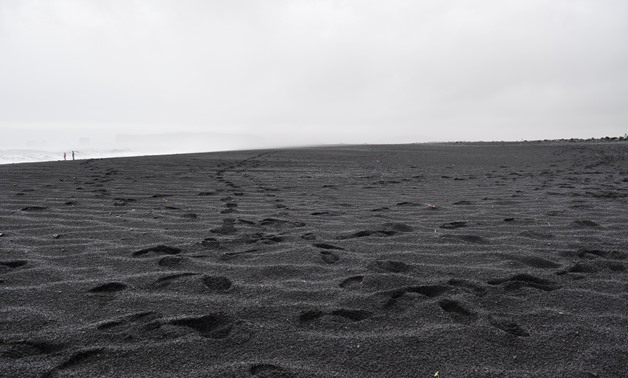
Black Sand via Wikimedia Commons
CAIRO - 23 September 2019: A huge project to extract mineral elements from black sand is being constructed in Kafr El-Sheikh governorate, Governor of Kafr El-Sheikh Ismail Taha told Egypt Today on Sept. 21.
The first part of the project is the construction of a factory belonging to the Egyptian Company for Black Sand, which is being established in the northeast of Burrullus on an area of 80 acres with joint investments between the governorate of Kafr El-Sheikh, the National Authority for Service Projects of the Armed Forces, the Nuclear Materials Authority and the National Investment Bank.
The project aims to train Egyptian cadres working in this field using the latest international technologies to benefit from the available economic resources.
The second plant, a subsidiary of the Egyptian Chinese Company for Black Sand, is being constructed in the north west of Burullus on an area of 35 feddans with an investment of $24 million, he noted.
The governor of Kafr El-Sheikh confirmed that the project will also contribute to the diversification and development of the Egyptian economy through enhancing mining industries to exploit the economic minerals in the black sand. The project will also cover the local needs of metals and exploit the growing global demand for them to export the surplus.
The governor of Kafr El-Sheikh stressed that the actual production of elements extracted from black sand will begin by the end of 2020. He said that the black sand is of great economic importance because it contains a large percentage of metals that can provide Egypt with an economic return of millions of dollars annually.
These minerals will be incorporated in many national industries, including the manufacture of aircraft structures, cars, ceramics and paints, as well as raw materials used in modern industries of black sand itself as the reserve of black sand hit 288.5 million tons.
Taha said that Kafr El-Sheikh is one of the luckiest governorates in the era of President Abdel Fatah al-Sisi, where a number of mega projects have been established since the president assumed responsibility, including the giant fish farm and the giant electricity network in Burullus.
In July 2019, Minister of Electricity and Renewable Mohamed Shaker launched the first phase of the separation and extraction of minerals from black sand in Rashid (Rosetta), a port city of the Nile Delta located 65 km east of Alexandria, in Beheira governorate.
According to a statement issued by the ministry, the head of the Egyptian Nuclear Materials Authority said the first phase consists of three units for extraction and concentration, in addition to two magnetic separation units with an annual output capacity of 31,000 tons.
In January 2019, the Parliament approved a draft law authorizing cooperation between the Electricity Ministry and specialized local bodies to benefit from Egypt's black sand and extract a number of economic minerals, considering it a real investment in renewable energy.
The draft law, sent by the Cabinet and approved by the Parliament, allows cooperation between Electricity Minister Shaker, the Cairo-based Nuclear Materials Authority and the Egyptian Black Sand Company (EBSC).
An official source said that Rashid has the largest reserves of black sand, with 500 million cubic meters, pointing out that the Egyptian sand deposits represent the largest reserves in the world, as they spread along areas on the Mediterranean coast.
The Rashid Beach area is the second region where the extraction process occurs after the coast of Baltim in Kafr El-Sheikh.
Black sand is found in many areas in Egypt, such as the coastal plain on both sides of Rashid and Damietta sub-districts, east of Bugaz, Burullus lake, and the coastal plain extending from the east of Lake Bardawil to the city of al-Arish in northern Sinai.
Black sand is heavy black sediment that accumulates on some beaches near the estuaries of the great rivers. It is named so because of its dark color. It contains many heavy metals such as iron. It also contains a small percentage of radioactive metals, and contains a high proportion of titanium, which is involved in the manufacture of missile structures and high-altitude aircraft.
It is also extracted from the high-quality black sand, Elmeneet, used in the dyeing and packaging of oil underground pipelines.

Comments
Leave a Comment